
In Central Jerusalem, a Special Place for Special People
“This Friendship Circle lives on miracles,” says Chanie Canterman, who has directed the program in central Jerusalem since 2008.
In the beginning, she met a few Anglo families who had children with special needs and matched them up with teenage volunteers as part of the “Friends at Home” program, something akin to the International Friendship Circle. The goal at the time was simply to provide respite for those parents who didn’t have any help or support.
But word of mouth spread. The program, which is a branch of the International Friendship Circle, now includes 75 families and 120 volunteers. In addition to its other benefits, it helps families navigate the Israeli bureaucracy related to families with special needs, connecting them with relevant services.
At present, Canterman has help from a single employee and a volunteer consultant, though she aims to have at least four more employees to be able to run a program of this size (and growing). She recruits from a cross-section of Israeli society, encouraging people to work together as part of a common mission. As a result, volunteer girls from different backgrounds receive training together, and as soon as the staffing situation allows, a boys’ branch will open as well.
The volunteers,” stresses Canterman, “are my miracle workers.”
Volunteer Yemima Silberg notes that the reason she doesn’t get paid is “not because my work is without value, quite the opposite. It’s because it’s priceless.”
Parents are the first to attest to this factor—to all the benefits Friendship Circle offers. Even though he is a volunteer, “Ariel is on the receiving end,” says his mother, Lisa Levi. “It makes him feel good to know that he is a contributing member of society, helping others.”
Esti Deutsch—the mother of 7-year-old Shloimie, who has Down’s syndrome—has her own moments of maternal pride and joy: “At Friendship Circle programs, for a few precious hours, I forget that my child is different.”
And while financial constraints can limit the scope of operational plans, Canterman relates that help comes in unexpected ways. For example, though they held a “Model Matzah Bakery” workshop this spring, they had no idea how they would meet all the related costs. At the event, a man by the name of Abe came forth and offered to cover the entire program, and since then has continued to support their work.
“G-d is pulling it from above,” she believes.
‘The Power of Giving’
Chanie and her husband, Rabbi Eliyahu Canterman, also co-direct the Chabad Center of Talbiyeh/Mamilla in Jerusalem. The parents of five children, they focus on reaching out to singles, in particular, hosting dozens for Shabbat meals.
In addition to his Torah learning and teaching as part of the Chabad center, Rabbi Canterman is completing a comprehensive dayanut program.
As for her Friendship Circle work, Chanie Canterman explains that her 17-year-old sister has Down’s syndrome, “so catering to those with special needs strikes a special chord in my heart.”
In Israel, the Ministry of Education requires high school students to perform some hours of community service, and that has been of tremendous assistance to Friendship Circle, attests Canterman. Many teenagers feel that it’s an obligation they don’t need or want, “but if you create an attractive program,” she says, “kids will find it and also find something in it for them.” More than that, they grow to appreciate the connections they make and the skills they have to offer.
Listing the benefits, she speaks of the camaraderie—the moments of warmth and progress—and the empowered teens who discover something beyond measure about humanity and the value of giving. “Volunteers feel that joining Friendship Circle is a privilege,” recounts Canterman. “They experience the power of giving and feel appreciated. They learn the joy of receiving unconditional love.”
Being a teenager is fraught with social and emotional challenges, she acknowledges, but as a volunteer working with a special child, they are removed from that for a while. These children, she says, “accept them unconditionally. Here, teens aren’t being judged; they aren’t being asked to change. It’s like a mirror of love. The magic of friendship: This, to me, is the Friendship Circle.”
‘Just Like Any Other Boy’
It’s also about focusing on one child—and their specific needs—at a time.
As an example, Friendship Circle Central Jerusalem recently hosted a bar mitzvah for a child with autism. The boy is a member of Friendship Circle in Marseille, France, directed by Chabad Rabbi Michoel Rosenthal, who contacted them for assistance in creating a memorable occasion for the 13-year-old, despite his challenges, during a family trip to Israel.
Even for them, this one was different.
“We were determined that this Jewish boy should have a celebration just like any other boy, right down to the cake,” she says.
Ari cannot speak, so his father had the aliyah while his son sat close to him.
“When he reached the words, ‘Asher bachar banu,’ he began to sob, all the way until the end of the blessing,” says Canterman. “At that moment, I felt I was hearing the most beseeching shofar sounds ever.”
Since tzedakah, charity, is a mitzvah Ari can participate in, the family and guests filled a box with baby-related items to donate to a local cause.
The event concluded with a visit to the Kotel, the Western Wall, where a group of musicians accompanied Ari and his family in joy and prayer.
The Larger Community
The community at large, adds Canterman, has started to embrace what they do. For example, the local municipality offers them use of Mamilla Park for at no cost (which she says was no small feat). These days, Friendship Circle children and teens can be seen drumming down Mamilla Avenue on Lag BaOmer and enjoying a barbecue in the park. People have responded, she says, and look forward to their festive events and joining in them.
Friendship Circle parents—Israeli or otherwise—have created a close-knit network among themselves. New olim have joined from countries such as Argentina, Australia, England, France and Russia. Having children with special needs has its own challenges when they arrive; integrating into a new society is an additional hurdle.
Canterman sometimes describes what families of special-needs children experience as a “wall of isolation between them and society.”
Friendship Circle, she adds, works to lower that wall—to serve as a bridge, and not a divider.
For more information, see: www.fcjerusalem.org.
Visit Jewish.TV for more Jewish videos.


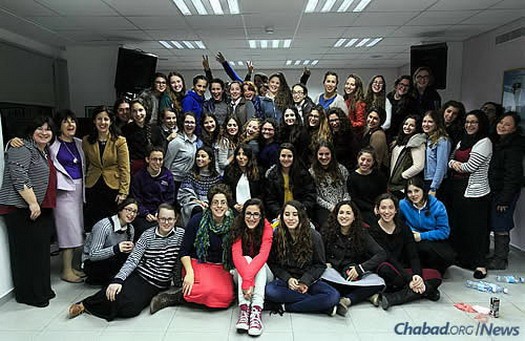
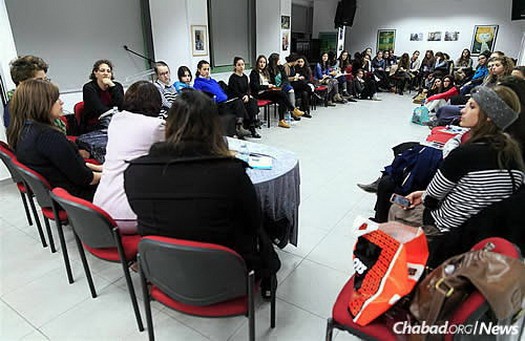

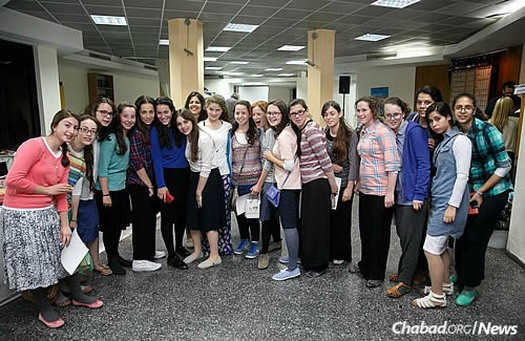
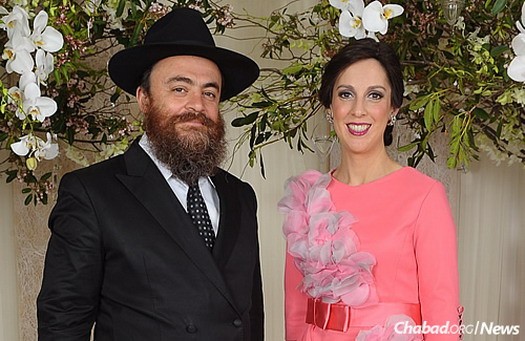
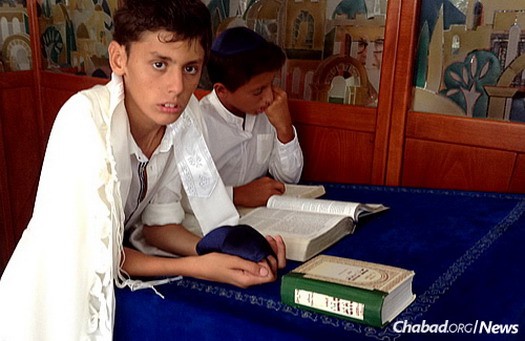
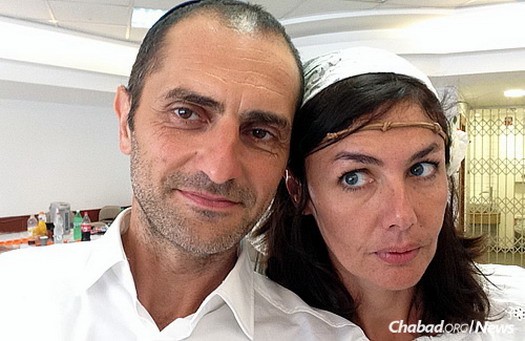
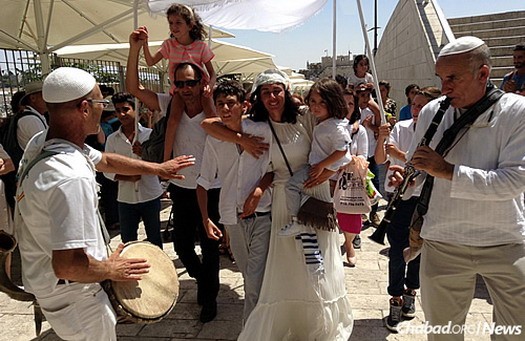
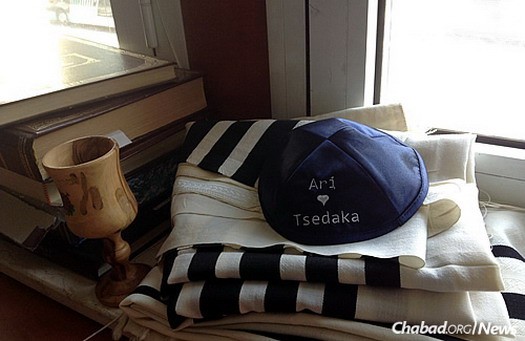
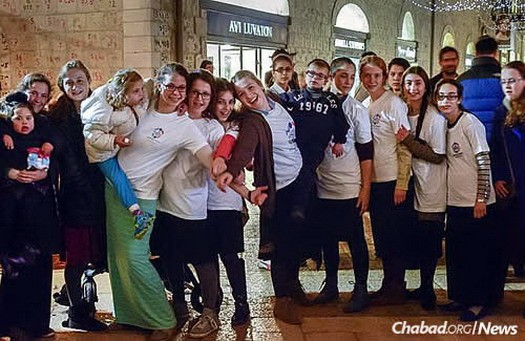














GO MIREL D!!!
GO MIREL!!